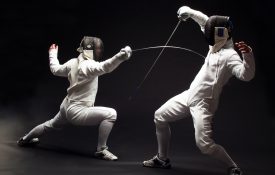-

New Research From Psychological Science
A sample of new research exploring the emergence of abstract grammatical categories in children’s speech, the development of a sense of body ownership, and adaptable categorization of hands and tools among prosthesis users.
-

Couples, Friends Show Similarity in Personality Traits After All
Using behavioral data gleaned from social media, researchers find that people are more like their friends and partners than previously thought.
-
New Research From Psychological Science
A sample of new research exploring social comparison and achievement in academic settings, the role of the hippocampus in enhanced fear learning in rats, and how emotion influences ensemble coding.
-

Words Can Sound “Round” or “Sharp” Without Us Realizing It
Our tendency to match specific sounds with specific shapes, even abstract shapes, is so fundamental that it guides perception before we are consciously aware of it.
-

Political Affiliation Can Predict How People Will React to False Information About Threats
Social conservatives are more likely to believe untrue warnings about possible threats than are liberals, two studies show.
-

People Are Surprisingly Bad at Knowing Who Their Rivals Are
New research suggests that we’re much better at knowing who likes us than who is competing against us at work.

